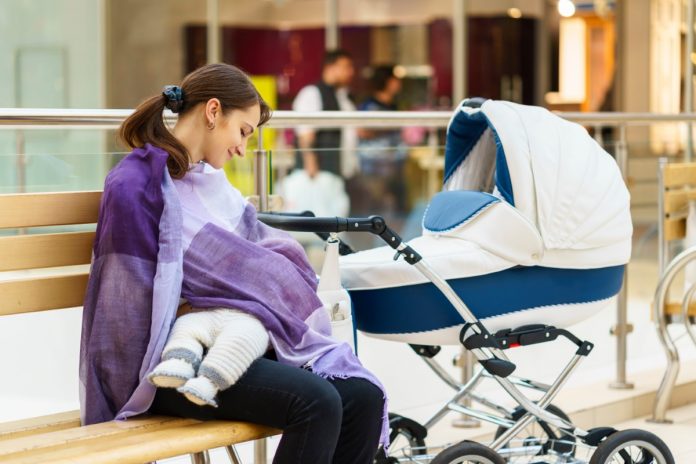Breastfeeding is a natural, normal, healthy part of motherhood and child development, and there’s no reason that breastfeeding your child should make you feel like you’re limited in where you can go and what you can do. You have every right to breast feed your child in a public setting, and the law is not on the side of few close-minded folks who still take exception. Pediatricians recommending nursing your baby exclusively for the first six months of life and continuing on with the introduction of other nutritious foods for the first two years of life and beyond if desired.
Discomfort with breastfeeding publicly can severely limit your activities when you have a baby – nursing is a frequent activity, with some newborns nursing 10-14 times a day. Many mothers have no problem exercising their right to breastfeed in public, and view it as an empowering act for women and girls as well as something that young girls need to see represented and normalized as part of the experience of motherhood and womanhood, and this is a wonderful thing. That doesn’t necessarily make YOU feel more comfortable, and if you’re not feeling at ease, the experience can be stressful, unpleasant and even unsuccessful.
If you’re having concerns about feeling exposed or people judging you or approaching you in a negative manner, review these tips for comfortable public nursing to help ease your mind.
1. The Law is On Your Side

Regardless of anyone’s feelings on public breastfeeding, it is a legal activity and something mothers have the right to do wherever they see fit. It is a natural, normal part of human development, and the healthiest possible sustenance you can offer your developing baby. There are people who may not understand that nursing is a legal right for women, and seeing you nurse your child can help to educate other people and help them feel more comfortable with this normal, natural act. A direct quote from the Ontario Human Rights Commission is as follows – “No one should prevent you from nursing your child simply because you are in a public area. They should not ask you to “cover up,” disturb you, or ask you to move to another area that is more “discreet.””








